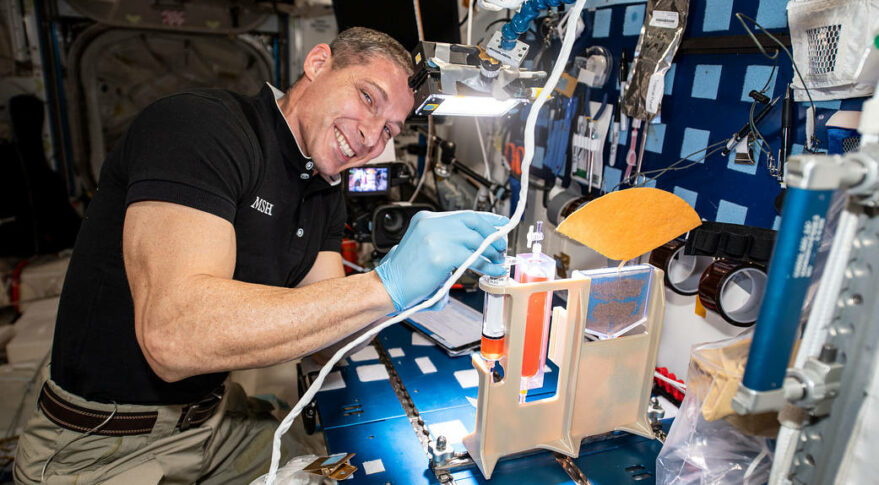by Sandra Erwin —

The technology developed by Eden Grow Systems leverages NASA-funded indoor farming technology
WASHINGTON — The U.S. Air Force is funding a study to identify potential uses of NASA’s plant-growing technology to feed troops in remote locations.
Eden Grow Systems and Rhea Space Activity announced March 16 they won a Small Business Innovation Research Phase 1 contract to look at possible applications of aeroponic technology to grow produce at inhospitable locations where some Space Force units are deployed.
Aeroponics is a more specialized version of hydroponics, a technology used to grow plants in sand or gravel instead of soil. With the aeroponics process, crop roots dangle in the air and are misted with a liquid nutrient solution.
The technology developed by Eden Grow Systems leverages NASA-funded aeroponic technology, the company said in a statement. Greg Stutte, head researcher at Eden, previously worked at NASA on methods to grow plants on the International Space Station.
The U.S. Space Force’s Space Launch Delta 45, based in Florida, operates a hydroponics facility to support launch operations at Ascension Island Auxiliary Airfield, located in the middle of the Atlantic Ocean, where deliveries of fresh produce are infrequent.
“Our scientists have developed varieties of new growing techniques on the ISS,” said Eden’s CEO Bart Womack, and these techniques could be leveraged to feed military troops.
The company plan to apply for an SBIR Phase 2 award to carry out a micro-farming demonstration and validate the technology for broader deployment or for specific use cases at remote locations such as Ascension Island.


